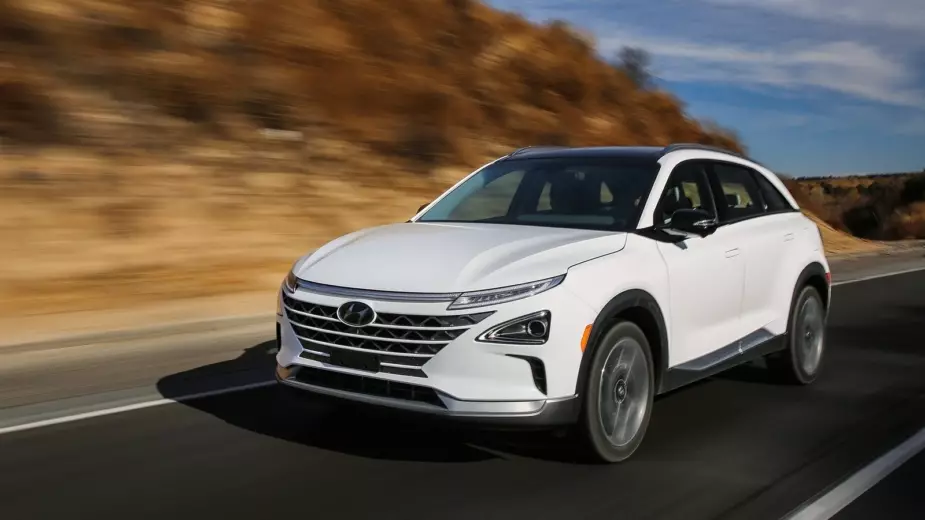Hyundai, along with Toyota, have been the brands that have invested the most in the development of fuel cell technology. In other words, electric vehicles whose engines do not require batteries, to the detriment of an electrochemical cell whose reagent (fuel) is hydrogen.
The Korean brand was the first to introduce a hydrogen series production vehicle on the market, making them available since 2013. It currently sells fuel cell vehicles in around 18 countries, leading the offensive for this technology in the European market.
Given these credentials, Audi wanted to partner with the Korean brand to continue its electrification strategy. A desire that resulted in the signing of a cross-license agreement for patents between the two brands. From now on, the two brands will work together in the development of vehicles with hydrogen fuel cells.
How it works?
This technology uses hydrogen cells that, through a chemical reaction, produce energy for the electric motor, all without the need for heavy batteries. The result of this chemical reaction is electrical current and… water vapor. That's right, just steaming water. Zero polluting emissions.
This agreement means that each company will openly share its know-how in the development and production of fuel cell vehicles. Audi will be able, for example, to access the information used for the development of the Hyundai Nexo hydrogen crossover and will also have access to the components that Hyundai manufactures for its fuel cell vehicles through the Mobis sub-brand created for that purpose.
Although this agreement was signed specifically between Hyundai Motor Group — which also owns Kia — and Audi — which is responsible for fuel cell technology within the Volkswagen Group — access to the Korean giant's technology is extended to Volkswagen products.
Hyundai and Audi. An unbalanced deal?
At first glance, without knowing the values involved in this partnership, everything suggests that the main beneficiary of this agreement is Audi (Volkswagen Group), which will thus be able to access the know-how and components of the Hyundai Group. That said, what is Hyundai's advantage? The answer is: cost reduction.

In the words of Hoon Kim, responsible for the R&D fuel cell department at Hyundai, it's a matter of economy of scale. Hyundai hopes that this cooperation will contribute to an increased demand for fuel cell vehicles. This will make the technology profitable and also more accessible.
With a production of between 100,000 and 300,000 vehicles per year for each brand, the production of fuel cell vehicles will be profitable.
This agreement with Audi may have been an important step in the dissemination of the technology, towards its democratization. And with carbon emission limits even tighter until 2025, fuel cell vehicles are on the horizon as one of the most viable solutions for meeting emission standards.
Six Facts About Hyundai Fuel Cell Technology
- Number 1. Hyundai was the first automotive brand to successfully initiate series production of Fuel Cell technology;
- Autonomy. The 4th generation Fuel Cell Hyundai has a maximum range of 594 km. Each refill takes just 3 minutes;
- One liters. Just a liter of hydrogen is all the ix35 needs to travel 27.8km;
- 100% environmentally friendly. The ix35 Fuel Cell produces ZERO harmful emissions to the atmosphere. Its exhaust only emits water;
- Absolute silence. Since the ix35 Fuel Cell has an electric motor instead of an internal combustion engine, it produces significantly less noise than a conventional car;
- Leader in Europe. Hyundai is present in 14 European countries with its hydrogen powered cars, leading this technology in our market.
